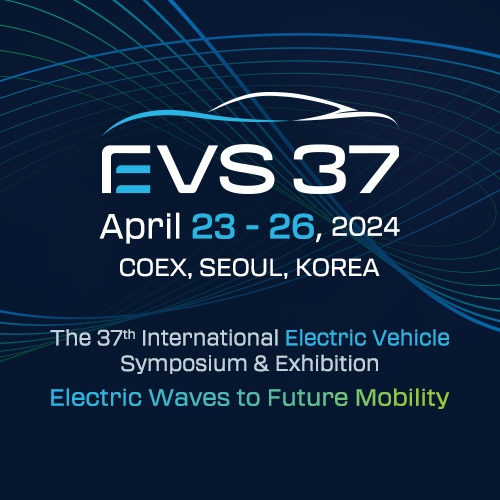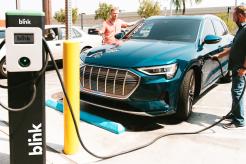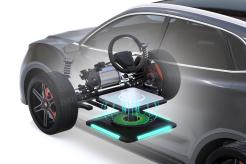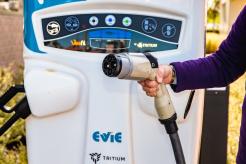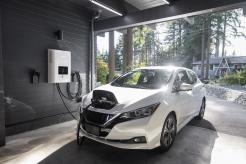The long-awaited solid-state EV battery is likely just over the horizon as Toyota unveils its solid-state prototype.
Solid State Construction: A Game-Changing Revolution in EV Batteries
Solid-state batteries are a game-changer in storage capacity, cold resistance, and safety. Early in July, Toyota revealed that they not only had a solid-state EV battery in the works but, more importantly for EV owners, it boasts a 745-mile range and cuts emissions by 39%, according to CarbonCredits.com.
Toyota’s solid-state EV battery can charge in an impressive 10 minutes, about the time it would take to pay for and pump a fuel tank for a gas- or diesel-powered car. Toyota hopes to have it on the market by 2027.
Streamlined Production, Lower Price
The coming Toyota battery will be half the size, half the weight, and will cost half as much. Its lowered cost will drive down EV prices, making them more affordable for lower-income customers.
One of the factors that lowered the cost of manufacturing Toyota’s solid-state battery is the carmaker’s ability to simplify its materials production. Streamlined production methods equal fewer labor costs, hence, a lower price once the finished vehicle arrives on the showroom floor.
Eco-Friendly Lithium Mining Methods

The solid-state batteries use no toxic materials, making them more eco-friendly. Additionally, new technologies have made the lithium mining process more efficient, such as extracting the metal from geothermal wells, thus further reducing mining’s environmental impact.
The EU and the US have implemented regulations requiring environmentally and socially responsible lithium sourcing. Recycling, too, will be part of the regulatory picture, as the previously cited CarbonCredits.com article points out.
Decreased Weight, Safer Roads
The decreased weight of solid-state batteries is also a positive step toward more EV adoption. One of the main drawbacks of wider EV use is the weight of today’s vehicles, a large chunk of which is attributable to the weight of their batteries.
Cutting that weight in half will ease urban planners’ concerns about collapsed parking garages, increased strain on the roads, and the forces an EV exerts during an accident, as Axios’s Nathan Boney points out. EVs on the road today, Boney says, are “anywhere from hundreds to thousands of pounds heavier than similarly sized gas vehicles.”
Indeed, the battery’s range will greatly ease the range anxiety that keeps rural customers from purchasing an EV. If the new battery ends up with the promised 745-mile range, that’s much further than any gas-powered car available today.
With 1,000 solid-state battery patents under its ownership, Toyota looks to dominate the EV battery field for years to come. Their plans include manufacturing at least 1.5 million batteries by 2030, half of their planned battery production.
If these batteries live up to their promise, the carmaker could dominate the entire automotive industry, should they prove to ease gas vehicles into a smaller portion of the market.
How Do Solid-State EV Batteries Work?
Solid-state EV batteries use a solid material instead of a liquid electrolyte. Instead of graphite anodes, they use lithium metal. This construction enables a battery to store more energy with fewer materials.
How Will Solid-State Batteries Impact the EV Charging Industry?
One of the drawbacks of EV adoption is the battery degradation that occurs during fast-charging sessions. As Autoweek’s Jim Motavalli shows, solid-state batteries retain more than 80 percent of their energy capacity even after 160,000 miles of usage.
In contrast to solid-state EV batteries, today’s lithium-ion batteries have a much-degraded capacity at high mileage. For example, the battery powering a Tesla Model S with 200,000 miles on its odometer typically only has 100 miles of effective range left, as Motavilli shows.
In contrast, Motavilli points out that solid-state batteries can last as long as 369,000 miles, well past the useful life of most of the vehicles they power.
Fast Charging Becomes a More Viable Option with Increased Range Retention
For that reason, solid-state EVs’ range retention capability will make fast charging a more viable option for long-term use, not only on long road trips. And, with these batteries’ ability to charge in only 10 minutes, EV charging stations will be able to serve more customers per hour than ever before.
And, if these batteries start providing vehicles with longer ranges than gas- and diesel-powered ones, the number of customers will likely grow exponentially as EVs become the logical choice for drivers of all stripes.
Expanded Opportunities for Smaller EV Charging Companies
.jpg)
More customers, more profits. Charging fees alone might soon earn a station owner enough profits as a standalone service, even if they don’t offer other amenities, such as a shopping center or restaurant.
With these fast-charging batteries, even smaller charging station companies that can’t afford to open a restaurant or shopping center on their property can compete with larger ones. With only a 10-minute charging time, all a driver would need is a restroom and a soda vending machine on the premises.
These smaller companies can afford to build stations in smaller, more rural communities. Smaller gas stations could also add EV charging stations to their facilities, offsetting the massive costs of installing DC fast chargers by the profit they’ll earn from charging fees alone.
A Bright Future for EV Charging Is on the Horizon
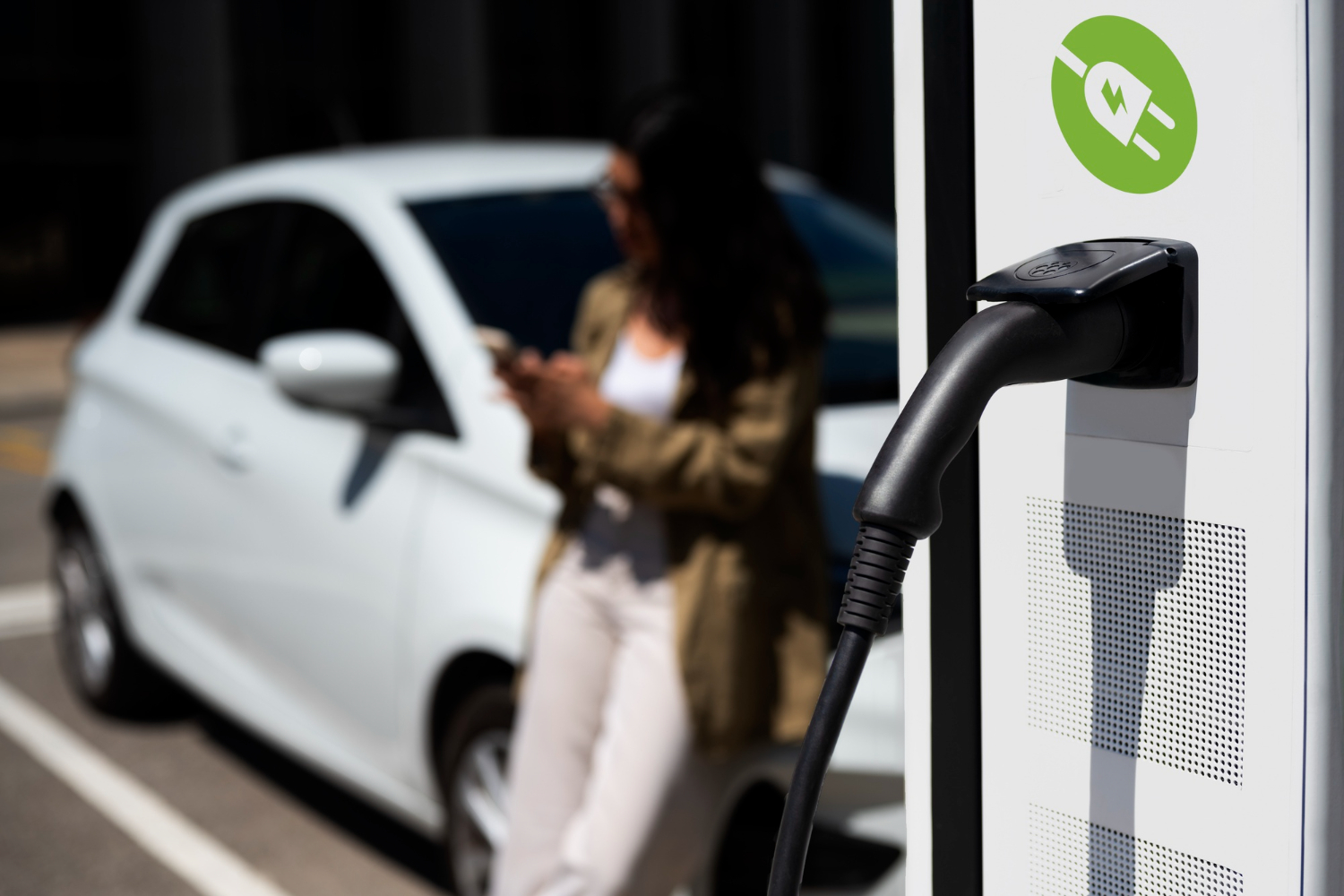
With solid-state batteries fast becoming a reality, the future looks bright for the EV charging industry. Now’s the time to get onto the ground floor of this rapidly expanding field.
At the EV Summit & Expo, you’ll learn about the emerging EV charging trends from the industry’s top minds. Arm yourself with the information you’ll need about funding, EV charging technology, and regulatory developments that you’ll need to take advantage of EV charging infrastructure for your business.
The next Summit & Expo is just around the corner. Don’t wait to make your reservations to attend this event. Reserve your spot today!

